Thought Leadership Studio Podcast Episodes:
Video for Thought Leadership with Jack Leigh of Eight Engines
Episode 65 - Mastering the Art of Video Storytelling: Jack Leigh's Insights on Authenticity and Engagement in Digital Narratives
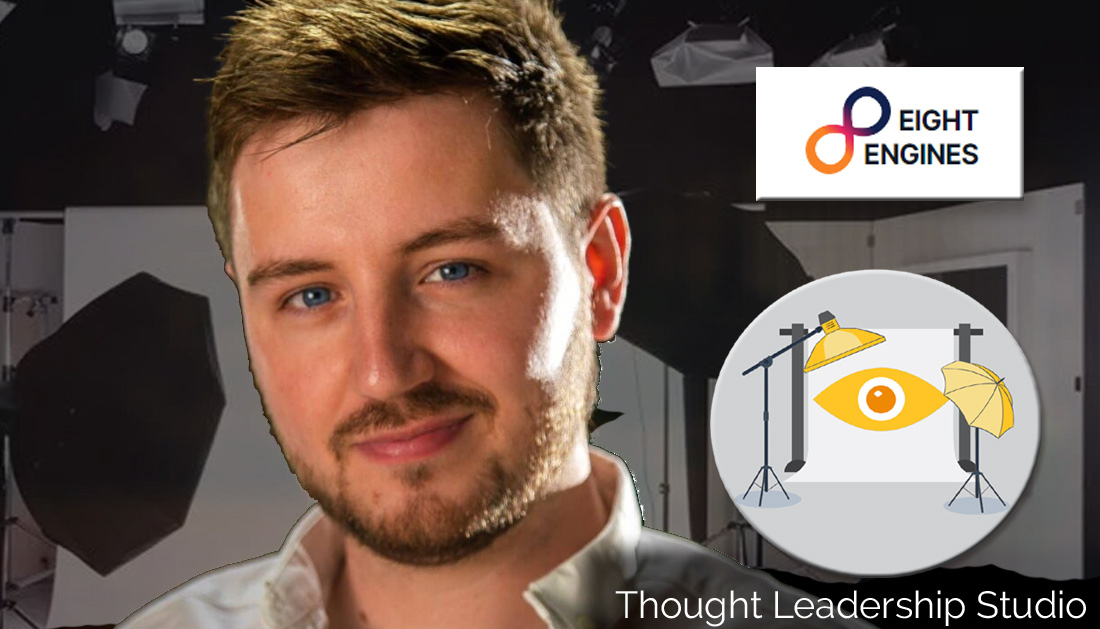
#communication, #filmmaking, #interviews, #marketing, #marketingstrategy, #personalbranding, #storytelling, #thoughtleadership, #video
Or Click here to listen or subscribe on appWhat this episode will do for you
:
- Jack Leigh's Video Production Expertise: Gain a deep understanding of Jack Leigh's extensive experience in video production, including his work on major film and TV projects and his journey to founding Eight Engines, a company specializing in commercial and marketing films.
- Authenticity in Video Storytelling: Learn about the crucial role of authenticity and relatability in video storytelling, and how these elements can significantly enhance audience engagement and connection.
- Insights into Video Production Workflow: Discover the intricate workflow of creating a video, from the initial idea to production and editing, and how this process contributes to the final product's effectiveness.
- Advice for Entrepreneurs on Video Creation: Get valuable advice for entrepreneurs on learning from existing videos, considering professional production assistance, and understanding the technical aspects of video creation.
- Humanity as the Core of Video Content: Understand the importance of maintaining humanity at the core of video content, and how this approach can make entrepreneurial stories more relatable and impactful.
- Strategic Use of Video in Marketing: Explore strategic ways to use video in marketing, tailored to audience preferences and business objectives, and learn how video can simplify complex messages for greater impact.
Jack Leigh of Eight Engines.
In this transcript, Chris McNeil interviews Jack Leigh, a video production expert, about the importance of video in today's digital landscape.
Jack shares his background in the industry and discusses the various types of video projects his company, Eight Engines, specializes in. He emphasizes the importance of authenticity and relatability in video storytelling, and how it can engage and connect with audiences. Jack also provides insights into the workflow of creating a video, from ideation to production and editing.
He advises entrepreneurs to watch and learn from existing videos, both within and outside their industry, and to consider hiring a production company or learning the technical aspects of video creation themselves.
Some of Jack's coordinates:
Curated Transcript of Interview with Jack Leigh
The following partial transcript is lightly edited for clarity - the full interview is on audio. Click here to listen.
Chris McNeil: I'm Chris McNeil, with Thought Leadership Studio, and I'm sitting here across the Atlantic Ocean with Jack Leigh, who has been working in the video production industry for 12 years, involved in a variety of projects from high-end film and TV productions like Fast and Furious, Six Peaky Blinders, The Last Tango and Halifax to directing documentaries around the world in Africa, the US, and even the Arctic.
For the last seven years, Jack has been leading a production company called Eight Engines, which produces commercial and marketing films as well as broadcast and arts work. One of the specialties of the company is working with interviewees, especially those who have experienced intense trauma to help them appear relaxed and authentic on camera. Since speaking on camera can be very challenging for interviewees, eight engines devote significant time to coaching them, ensuring their authenticity throughout the process, something extremely important to thought leaders in general. Of course. Welcome, Jack.
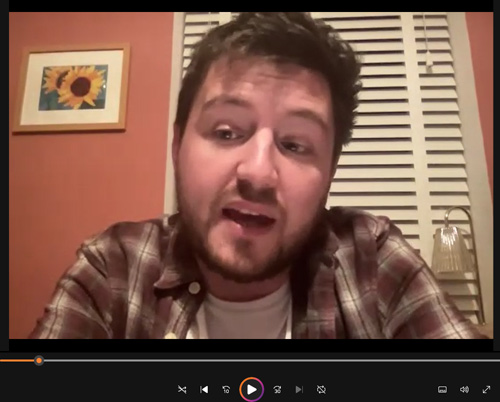 Jack Leigh: Hi. Thanks for having me.
Jack Leigh: Hi. Thanks for having me.
Chris McNeil: Great to have you. So tell our listeners a little bit about your story and what set you off on the path to the creative engine of video that's so important these days. Was there a pivot moment for you or a story behind why this video is for me or "Why I should do this"?
A "Lazy Kid" Who Rediscovered a Love of Making Content and Telling Stories
Jack Leigh: I'd love to say that there was some kind of really inspirational story, but I think the honest answer is I was a lazy kid that enjoyed sitting down and watching films and TV a lot, but through being very lazy for a long period of time, I kind of developed a really deep love for it.
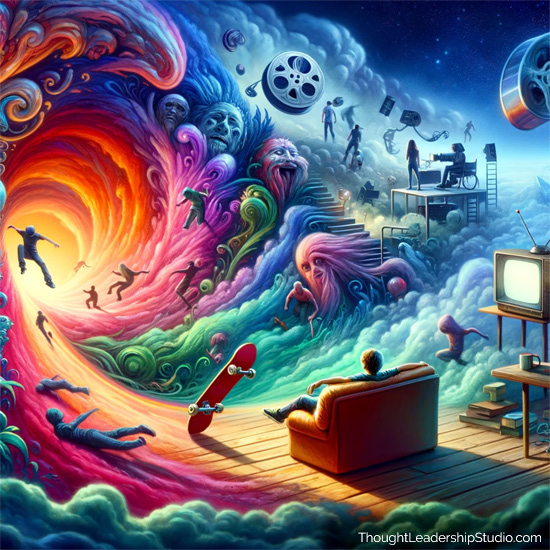 When I was about 14, we started going out and making skateboarding films, which is a weird path that a lot of people get into this. And then, yeah, long story short, I ended up working as an assistant director on various films and TV shows, but got quite burnt out with it if I'm totally honest. So after a few years, like we say, working in relatively junior positions across a few high end different projects, I got quite burnt out with it and decided I was going to leave and ended up getting a job at a documentary production company, which was incredible.
When I was about 14, we started going out and making skateboarding films, which is a weird path that a lot of people get into this. And then, yeah, long story short, I ended up working as an assistant director on various films and TV shows, but got quite burnt out with it if I'm totally honest. So after a few years, like we say, working in relatively junior positions across a few high end different projects, I got quite burnt out with it and decided I was going to leave and ended up getting a job at a documentary production company, which was incredible.
And I sort of rediscovered a love of making content and telling stories in a way that actually helped people. It was like it was smaller teams were more connected to the creative of all. And then after while working there, ended up setting up a production company called Eight Engines. And now we make films for a whole variety of reasons. We've made TV shows, we've made documentaries, we've made tons of commercials, corporate videos, anything that kind of uses story to tell a message.
Chris McNeil: That's awesome. And it is fascinating to me- this whole medium of video. Obviously, the sensory system of vision is the most acute one that we have as human beings. You can convey the most information only when you incorporate that.
What would you consider the core components of taking a story, maybe taking a person's story that you want to tell via video and making it come out right in the way that's really going to engage the listener?
Jack Leigh: Because it's a really hard question to ask and it's a question that's only getting harder. We sort of live in a world where people are bombarded by video these days.
It used to be like there was, I mean particularly in the UK when I was growing up, there were four channels. Then we got a fifth channel and then if you're lucky you had Sky or whatever. But now we're at a world where there's video everywhere. I read the other day, the average person watches something like 19 minutes, seven seconds of video every day ... that you're bombarded with it.
So it's on billboards, it's on your watch, it's on your tv, it's on your phone, it's on your laptop. Everywhere you go, there's video content. So creating things that are engaging and authentic is only getting harder. The quality of video work that we make is brilliant now.
You know what I mean? If you look back and watch something that was made 10 years ago, the quality of the artistry, the technical know-how behind it's so much smaller. So I think what we're getting now is we're in a world where you can be very specific with what you want to do with video, it is very coded. Everyone understands, everyone's very literate with video.
So there's different things that you can do that imply different messages in very specific ways. So I guess the answer of saying how do you make the best video projects is almost too broad because it's how you make the best video for what you're trying to achieve. It might be that you're trying to achieve, if you're making an advert for BMW, you're going to make something that's very glossy, polished. You're implying quality.
But if you're making an advert for, I dunno, a pair of boxer shorts, that's got a bit of personality to it, you might make something that's intentionally what would traditionally be considered a lower quality because you're trying to say something, you know what I mean? You're trying to make a comment on the style of the brand or on the style of the story, of the style of the product. So I guess it's such a broad question without a specific example, it's hard to answer.
Chris McNeil: Well, let's hone in and think about the typical listener of this podcast who's an entrepreneur, who has a story to tell, and perhaps the story they want to tell is one of how they came about founding their business and thinking, well, this is probably boring to somebody who's not in this kind of business. How can I make this engaging? How can I make this video really grab people and make it interesting to them?
Jack Leigh: Well, I guess the thing for me that's relatable about any story is people are ultimately relatable. If you've ever sat down with someone for long enough, you'll find something that you relate to them about. So it's about keeping the humanity at the core of it.
Humanity is Your Biggest Asset
We talk a lot about, certainly in our game, a lot of people create videos very similar to this. They've launched a business, they want to create a video that tells their story, tells their journey, or tells a little bit about the business. Frequently people are a bit nervous about being on camera themselves.
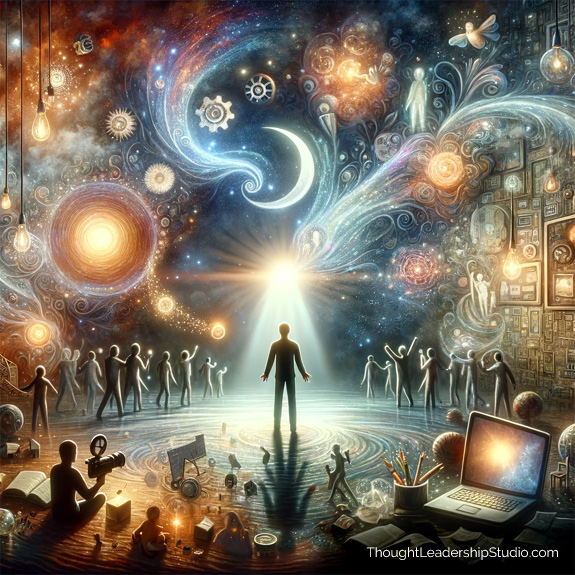 So we talk a lot about animation or we talk a lot about actors, but the videos that turn out the best tend to be the ones that star the actual person. You know what I mean? If you can treat a film like it's a conversation, if you're kind of sat there having a conversation with someone, that tends to be the most relatable messaging.
So we talk a lot about animation or we talk a lot about actors, but the videos that turn out the best tend to be the ones that star the actual person. You know what I mean? If you can treat a film like it's a conversation, if you're kind of sat there having a conversation with someone, that tends to be the most relatable messaging.
If you look at a lot of the, particularly at the sort of the more entrepreneurial end of the spectrum. If you look at adverts that have, or premier videos that have done well, they tend to star the founder.
So if you look at something like, I mean off the top of my head, the famous Dollar Shave Club advert that star, the founder of the advert, I mean, it's very relatable because he is in it. It's very human. So I'd say yeah, keeping that central humanity at the core of what you create is always your biggest asset.
Chris McNeil: And you work with people in this type of production. Where does your group come in? Do you write the scripts? Do you take scripts and convert them to video? Both depending on the situation. Where does the interface happen, say with an entrepreneur who wants to bring their vision to life through video and the hire your company? What do you expect them to come to you with and where do you bring them from there?
Jack Leigh: I guess the answer is nothing or everything. My favorite projects are the projects that people come to us with what they want for it. We have a slogan that we start every project with, which is no one's ever wanted a video. No one does want a video. Everyone wants the thing behind the video.
So for me, if someone can come to us and say, this is what we actually want, we can start with the ideation and we can create the work that gets you to that point. Quite frequently you do get people that come in with their own ideas and things like that, which is absolutely fantastic. But you sometimes, not always, but sometimes get to a point where it slips from being a marketing tool into being a part of someone's ego almost. Because everyone wants to be creative, everyone wants to come in with ideas, everyone wants to have this vision for themselves.
But if you're not thinking about that end point of what you actually want, it's very easy to just make something where it's like, we want to look like this and this is my great idea and I want to hire this film crew in to make this idea. But actually it tends to work best when you work with us from the point of ideation because we know all the tips and tricks and the audience research and everything else that gets you to that end point.
Chris McNeil: So the audience piece of it. So if you have the research piece with the audience, what does that tell you and what kind of surprises do your customers or your clients run into when you bring in information about "here's what the audience would like as opposed to what your vision was"?
Would you rather do it this way? Is there some negotiation involved and helping home people towards something that's going to get a better response than the way they thought it should be done?
Jack Leigh: Yeah, I mean, the honest answer is most people, if you actually ask them enough questions, know the answer. You know what I mean? Most people realistically know what their audience wants. So if you come to us for a meeting tomorrow and say, I'm an entrepreneur, I make bookshelves, I want to make this video. We don't have any research on the people that make bookshelves, but you probably do.
What Do You Want to See vs. What Does Your Audience Want to See?
So one of the great exercises that I quite like to do is we sit down at a meeting and we go, the first question is, well, what do you want to make? And people will come in and go, oh, I want to make this. You know what I mean? I want to see this bookshelf on top of a mountain in the pouring rain. And you go, oh, okay. You start writing this down and you have 10 minute conversation with them, and then you sit down and you go, what do you think your audience want to see?
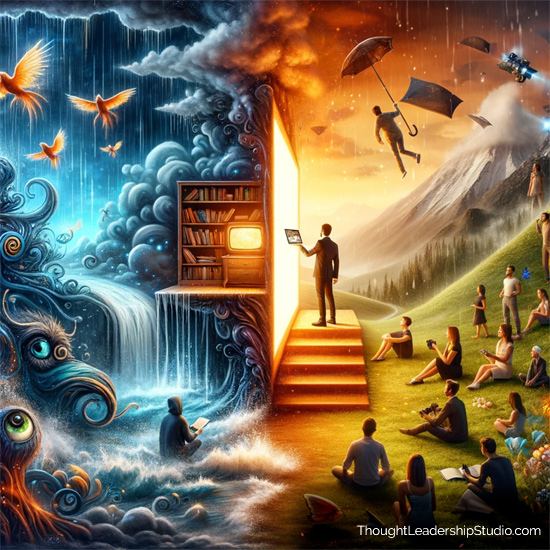 And they go, oh, okay. You get these things. And then at the end we put the two pieces of paper next to each other and go, this is very different. What you want to make is very different to what your audience want to see. If you want an advantage at this thing, make something that people want to engage with. You know what I mean? You're already starting three steps ahead.
And they go, oh, okay. You get these things. And then at the end we put the two pieces of paper next to each other and go, this is very different. What you want to make is very different to what your audience want to see. If you want an advantage at this thing, make something that people want to engage with. You know what I mean? You're already starting three steps ahead.
If you're making something that your audience wants to engage with, you might make this brilliant advert that everyone loves and everyone in your team's really happy with it. But if people turn it off in five seconds, it's not done any job. You know what I mean? You may have a video, but a video's like the journey, not the destination. So I think once you start having those conversations, people generally work out for themselves.
Chris McNeil: Interesting. So the conversation involves helping them pivot to the customer point of view is one piece of it that I'm getting ... to step into it. You asked what would your customer like to see? They kind of come in with their own, like you said, "ego-based" vision perhaps of "Here's what I'd like to see the video do"...
And for somebody who's relatively ignorant now, say I'm super deep in the music world, but I have some chops in the music world. I'm a musician. I've produced, et cetera, and written songs. So the audio piece I understand, but I know nothing about video.
So maybe I am someone who might be a model of our listener who's in a similar position of "I haven't done video yet. Where do I start? How do I conceptualize what it can do for me could do for my business as an entrepreneur or solopreneur or a maker, an influencer? How do I start? What are the steps of doing it right?"
Jack Leigh: So I guess "how do you start?" is an interesting question. It's about whether or not video is the right medium. Now video is really good at taking complicated messages and making them engaging and relatable. So we always say if you're trying to get a message out there, if you're trying to get people to listen to, your video is the best medium to do it. You know what I mean?
It's sort of the evolution of every bit of your senses or well, your two major senses. You know what I mean? It's your sight, it's your sound, it's storytelling, it's music, it's visuals. It's kind of a lot of mediums put together in quite what is now a very relatable way. 90% of the time, particularly when it comes to marketing, we're sort of advertising to people who are sat on the toilet watching videos on their phone.
It's just this very easily accessible medium. So where you start is thinking about is you need to think about why you're trying to do it. If you're trying to get a message out there, if you're trying to speak to people, if you're just trying to make something that you want people to watch on your website, you don't have the next step.
The UK Post Office Scandal
It's probably not going to work very well if you've got a planned honed idea in there of where you want it to go, what you want people to do when they watch it, what message you want to get people out to. I'd say the next step is if you've got the budget to engage a production company who can work on with the creative, if you've got a branding agency, probably work alongside those. I mean if you look in the UK at the minute, there's something that's been going on with, I dunno if you've heard, there's a post office scandal.
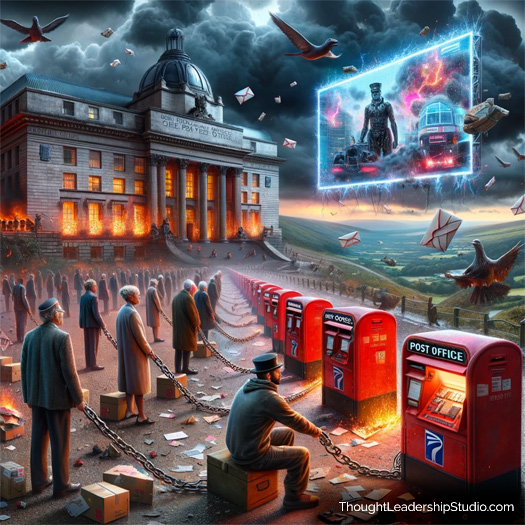 So in the United Kingdom, the post office basically arrested one person a week for about 15 years for fraud. They were saying that people - this does go somewhere, I promise - they were saying that people were stealing from the post office. And it turned out in 2019 it came out that it was actually their system that was broken. So it was basically they were prosecuting people. They've got their own internal prosecution system, they're prosecuting people for theft saying that they've stolen money from the post office for three years.
So in the United Kingdom, the post office basically arrested one person a week for about 15 years for fraud. They were saying that people - this does go somewhere, I promise - they were saying that people were stealing from the post office. And it turned out in 2019 it came out that it was actually their system that was broken. So it was basically they were prosecuting people. They've got their own internal prosecution system, they're prosecuting people for theft saying that they've stolen money from the post office for three years.
This story's been around and everyone's known about it. You'd think that's horrific. There's something like 900 people, they've only overturned 90 convictions in these 15 years. On January the first, there was a TV show called Mr. Bates versus the post office that came out. It took the messaging of that story, put it in a video essentially, or a TV show. And in 10 days the government had announced legislation to overturn all these convictions because it just ignited the country behind this course. So that's where video works well is if you've got something like a very complicated message that you're looking to distill down into a simple package.
Chris McNeil: Interesting. And that plays into Strategic Thought Leadership. And what I do is I help entrepreneurs, typically business people package their ideas and make their ideas empowering to an audience and help them organize them so that it is makes great content for when people spend the seven hours a day they spend on average on the internet researching.
And we've got kind of a dominant paradigm on the internet of push marketing - paid reach. And that gets some pushback because it requires data harvesting. And speaking of videos that can make a difference. I just saw some videos an attorney did here in the US about how the Supreme Court here has said that, police can actually now get your data without a warrant by buying it from data companies.
Jack Leigh: That's crazy.
Chris McNeil: Yeah, it's crazy. And it just brings up yet another nail in the coffin of this data targeted type marketing. So instead we look, well, people are researching online before they make a purchase, they're looking how to make an intelligent decision. How can we empower them to make the most intelligent decision? How can we help them expand their thinking to see what we do in a new light that helps them get more value out of it?
That's important to them. And video of course to make a great medium for that. And in packaging thinking models, here's some things I've thought about: There's somebody who's a novice at, wouldn't it be cool to have video with maybe a little dialogue about here's a new way to look at this industry, here's where we want to lead this industry.
Maybe start it with a personal story, and this is based on my experience of, and then you maybe have some stock imagery of these factories burning or whatever illustrates the point of the wrong way. The industry has been going the contrast with this new model and maybe this new model has a visual explanation of shapes that show thinking models about it that you might pull just from some graphics that you use on the screen. Well, here's the three point model that illustrates this.
Would that be an effective way to use video? Or what would you suggest?
Jack Leigh: Well, it depends on once again, what the end goal is. I think even there's a phrase like the medium is the message. The way you're making that video is saying a lot of things ...
***************************************
The transcript is lightly edited for clarity and is a partial transcript- the full interview is on audio. Click here to listen.
***************************************
Free Stuff and Offers Mentioned in Podcast
***************************************
***************************************